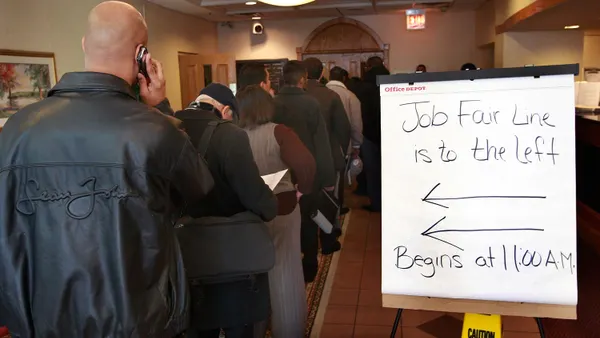Dive Brief:
- Almost 90% of manufacturing companies — 98% of which are small businesses — cannot fill all available jobs, data compiled by SCORE showed. The entrepreneurship mentoring network found more than three-quarters of these companies have less than 20 employees. Despite their small natures, manufacturing businesses generated 11.6% of the country's economic output and employed 8.5% of the workforce last year, SCORE said.
- The industry's difficulties in hiring could stem from shifts in the skills sets required due to advancing tech, the mass exodus of baby boomers from employment and a misconception about manufacturing jobs overall, SCORE said.
- Small manufacturing businesses encompass a host of sectors, from handmade industries like bakeries to highly sophisticated machine-made goods, according to SCORE's data. More than 50% of the sector includes apparel, furniture and fabricated metal products.
Dive Insight:
With more than 400,000 jobs currently open and an anticipated 4 million to fill in the next 10 years, manufacturers are struggling to find talent. Turnover in manufacturing is at an all-time high, especially as baby boomers continue to age out of the workforce.
Even as more advanced manufacturing facilities geared toward upskilling open, collaboration will be needed to train the workforce of the future. Employers can partner with government entities, educators and non-profits to foster upskilling and work-preparedness. One Connecticut facility, for example, trains high school students to use advanced manufacturing tools.
As for developing technology, some research has indicated it will recreate jobs, rather than eclipse them. Employers will need to leverage technologies like AI and machine learning to continuously retrain and upskill current employees.










